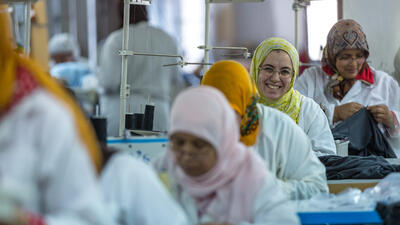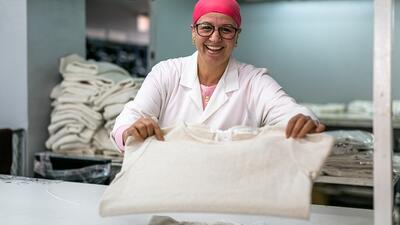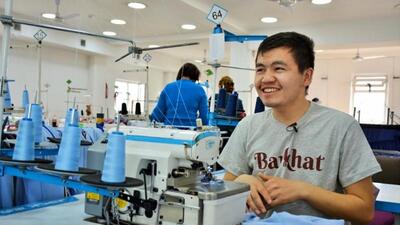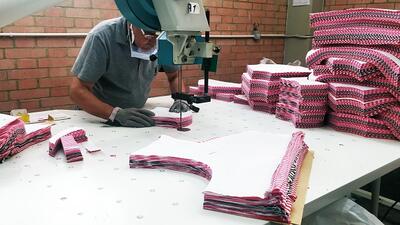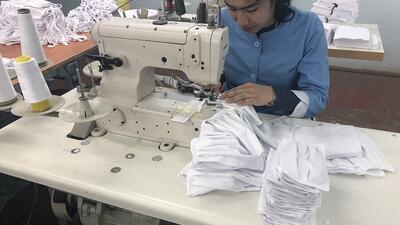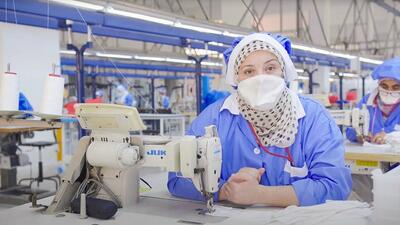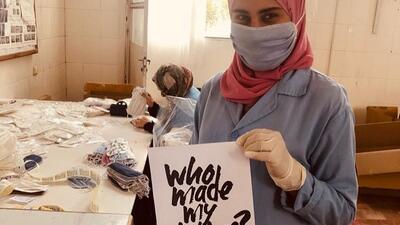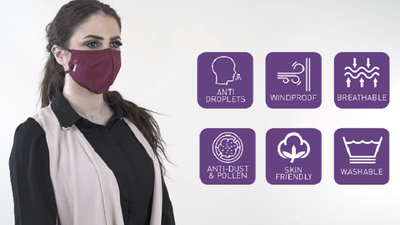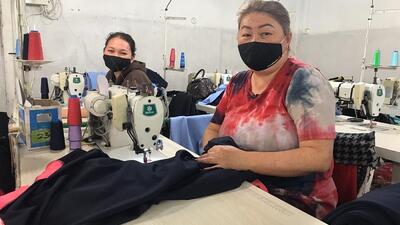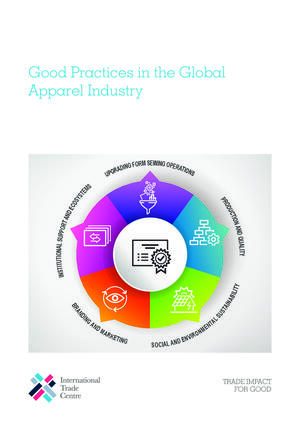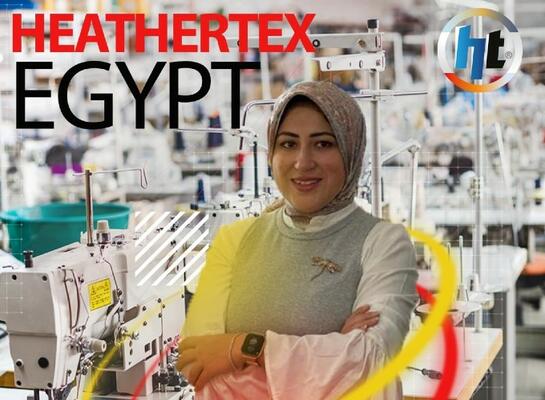
Women push apparel business in Egypt towards recovery
Heathertex, a medium-sized clothing company in Egypt, has experienced a loop of challenges and adversity to keep their business open.
Director Alaa Hamdy explains that in March 2020, when the COVID-19 virus hit Egypt, she knew that the impact would not only relate to health and the economy, but that it would also affect women and vulnerable communities socially.
Established in 2018, Heathertex employs around 350 people, 80% of whom are women. “Being a woman myself, I understand women’s needs and the responsibilities they carry on their shoulders. More than ever, our company had to be a strong and reliable employer,” says Hamdy.
She explains that since the COVID outbreak, they have not dismissed or reduced the salary of any of their employees, “on the very opposite, we are planning to build a nursery on our premises, so all mothers have a safe place to leave their child. A small but crucial service that will have a major, positive impact on their personal and professional lives,” Hamdy proudly emphasizes.
Heathertex production comprises knitted and woven wear like scrub tops, bottoms, work uniforms for men, women and children. The company exports 100% of its products, mainly to America as well as to Italy and Greece in Europe. “In our two first years, we have achieved impressive results selling our products to famous international brands,” comments Hamdy. The director argues that despite all the challenges, 2020 was surprisingly a positive year for her company. “We restructured our production and operations to respect all health and safety measures. Our sales increased by 23% during the pandemic,” says Hamdy.
With the support of the International Trade Centre (ITC), the Alexandria-based company has progressed thanks to the initiatives led by the Global and Middle East and North Africa Textiles and Clothing Programme (GTEX/MENATEX).
For Alaa Hamdy, receiving support through the GTEX/MENATEX project made a real difference during COVID-19. She explains that the increase in export is related to reducing the company’s lead-time, a methodology they learned at a training.
“The GTEX/MENATEX project brought insightful ideas and know-how to our company. We are currently implementing the techniques we learned in the Lean Manufacturing and Material Sourcing training courses,” says Hamdy. She also explains that Heathertex will apply environmental management measures designed during the resource efficiency and circular production coaching (RECP), as well as add more sustainable practices in their production.
“We are looking for green solutions in our electricity and water consumptions. In addition, we plan to improve our resource efficiency and enhance our waste management to increase our profitability.”
GTEX/MENATEX in Egpyt
Yasmine Helal, GTEX/MENATEX National Project Coordinator for Egypt, emphasized the dedication of the participating companies and their achievements.
“In 2020, despite the pandemic, many companies were eager to learn and adjust with the new trends and norms. Eleven companies made massive changes to their digital presence following the digital marketing and access-to-market coaching the ITC project provided, including three who developed their online stores,” says Helal.
The national coordinator also highlights that five companies reported improved operations and lead-time. “They increased the efficiency of their operations by 10% to 15%, following the lean manufacturing training. Another five companies reported receiving export orders from new international buyers as a result of the funded participation to virtual exhibitions with others in progress and/or in negotiation phase,” concludes Helal.
GTEX/MENATEX Egypt plans for several activities and training courses including a boot camp on access to finance for textile and clothing companies in July. The two-days event will provide companies the opportunity to improve their knowledge on finance and accounting, as well as acquiring skills and confidence to design and pitch a project to financiers through role play and matchmaking sessions. Following national health authorities’ guidelines, the event is expected to take place in Cairo in a hybrid format.
The Global Textiles and Clothing Programme (GTEX) and the Middle East and North Africa Textiles Programme (MENATEX) are implemented by the International Trade Centre until December 2022. They are co-financed by the Swiss and Swedish governments, respectively.




